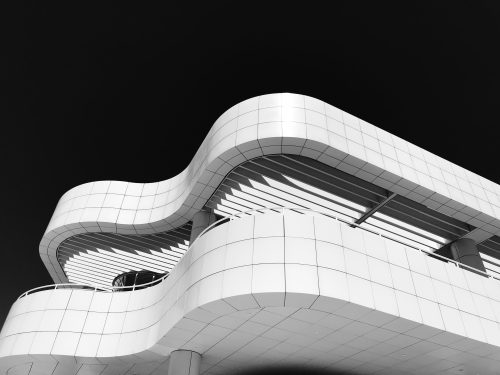I’m standing outside one my favorite places on earth, the Getty, next to an Asian man outfitted in rancher’s attire: white cowboy hat, yellow snakeskin boots, head-to-toe denim. The views here are stunning. Even under a ceiling of cerebral clouds, you can see miles in every direction: I think I finally understand the true meaning of the word “panoramic.” With a galaxy of green hills to the south, downtown L.A.’s diffused skyline to the east, and a string of ruby taillights scorching the congested 405 to the north, the sun is preparing its descent into the hills of Santa Monica to our west, casting long, angular shadows before it disappears behind the Pacific’s metallic horizon, like a glowing coin placed carefully into a wishing well.
“I like your hat,” I say to the denim-clad man, towering over him even with his heeled snakeskins.
“I like it, too,” he responds definitively, with a thick Japanese accent and a nicotine smile, his cadence dressed in conviction. “I love living life,” he says with no further explanation, as if everything that needed to be explained—about him, about life in general—is contained inside those four words. Although we’ve never met, the two of us are bystanders in the museum’s afternoon architecture tour, which is just wrapping up. Our tour guide points out the 80,000-year-old granite pillars framing the impending sunset.
Behind us, an American man is complaining to his wife about the cold breeze, about the clouds overhead, about the lack of amplification in the tour guide’s voice. He has been pompously protesting the entire tour. Apparently the universe has conspired to ruin his day. From the sound of his steadfast objections, everything here is ill-suited for his presence.
There should be something out of place with a five-foot-tall Japanese cattleman standing among Rembrandt paintings and modern architecture in Southern California, but there’s not. And yet something is off with the everyday American maundering about the world’s inadequacies.
Tuning out the American for a moment, I let the cowboy know he would fit in well back home in Montana. We have a lot of big hats and pickup trucks, I tell him. He says he likes that part of the country—“the Wild Western” he calls it—and then recommends a book called The Solace of Open Spaces by Gretel Ehrlich. (Although the book is out of print, I later find a copy online and discover for myself Ehrlich’s gorgeous rumination on life on Wyoming’s high plains.)
Despite the cowboy’s unconventional appearance, or maybe because of it, it is obvious that he would fit in almost anywhere. His posture, his gait, even his gap-toothed grin, speak volumes about this man’s interior life. He seems composed, resolute, content—many miles from arrogant. In a word, he is confident.
Conversely, no place seems fit for the babbling American: his regal standards and his poor expectations make assimilation a constant problem. After another snarky comment directed toward his wife, I give him a searing eyeful, and his gaze immediately searches for his feet. His voice may be the loudest in the pack, but volume isn’t a measure of confidence. A truly confident man need only whisper to be heard.
The sun is completing its coin toss into the ocean, our group outlined in twilight. Looking over the cowboy, surveying his staunch temperament, I realize that his confidence is simply an external display of a rich interior life—congruency between his internal and external worlds. Arrogance, on the other hand, is the opposite of confidence: a veneer of composure, incongruence at its zenith. This is why a confident man is able to coalesce with any group, anywhere—an arrogant man, nowhere at all.
Confidence holds up under scrutiny, whereas arrogance fractures with the slightest crack. And, as human beings, we all have cracks. Sooner or later, a spotlight is shone and the arrogant man’s pomposity is exposed, seeping through the veneer, while the confident man just admires the beauty of his flaws.
Read this essay and 150 others in our new book, Essential.


